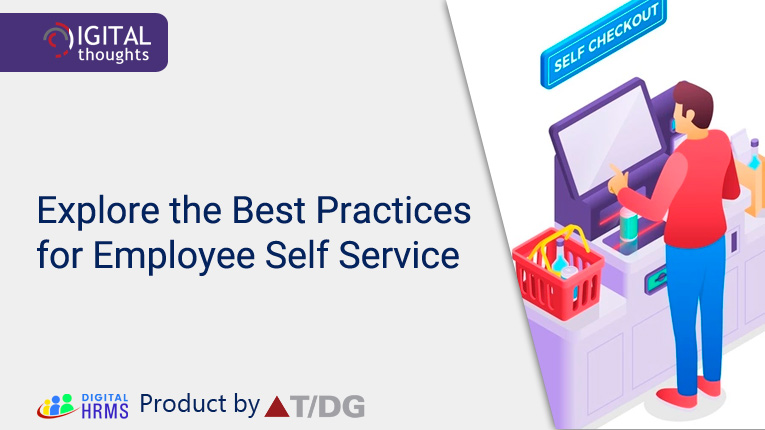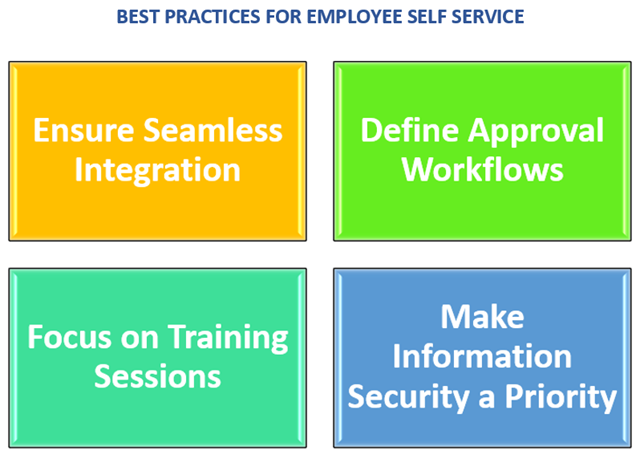Explore the Best Practices for Employee Self Service

What is Employee Self Service? Employee self service can be defined as a platform that enables employees to perform a bunch of basic HR functions independently. All that the employees need to do is login to the platform and click on the menu available under the Employee Self Service section and then follow the workflow to get simple tasks done.

There are many advantages of the employee self service platform, the primary ones being a boost in employee morale and lesser dependency on the HR team. Here are some of the benefits of the employee self-service platform as offered by new age HR software platforms like Digital HRMS.
- Empowerment of the employees
- More meaning to enterprise mobility
- Reduced workload of the HR department
- Less confusion and more clarity
- Faster processes due to reduced dependency
- Easier way for employee grievance redressal through the HR Help Desk
- Boost in employee morale
- Higher levels of employee engagement
So, now that we have looked into the key benefits of implementing employee self service program, let us take a quick look at some of the best practices that enterprises should follow in order to get the best results when it comes to employee self service platforms.
Best Practices for Employee Self Service
The following are the best practices to be followed for the effective implementation of employee self service.

Ensure Seamless Integration
Another important point when it comes to the implementation of employee self service, it is important to ensure the platform is seamlessly integrated with all the major modules like Payroll, Leave & Attendance, Reports, Performance Assessment, and more. The higher the level of integration with multiple modules, the easier it will be for the employees to access more and more functions under the self service platform. This step makes the employee self service more effective and new age HR software platforms like Digital HRMS offer advanced integrations between modules as well as seamless integration with existing enterprise software, which facilitates success of employee self service.
Define Approval Workflows
When you implement employee self service, approval workflows are essential. In the absence of pre-defined workflows, the entire purpose of employee self service is of little significance. This makes it really important to define approval workflows so that the employee self service process can be seamlessly implemented. This way, the process becomes a success, as the employees are no longer required to take follow-ups offline.
Focus on Training Sessions
If you want to see your employees use the employee self service to its fullest potential, you need to make sure they are familiar with the platform in and out. For this, training sessions are important. Also, training sessions will give the employees the required confidence to make the transition to the new system. It is important for the HR team to make the employees aware of the benefits of using the employee self service platform.
Make Information Security a Priority
When you have employees accessing information, data security becomes a priority. Also, some factors need to be considered to ensure there are no bottlenecks in the seamless access to the platform. The IT department needs to take special efforts to ensure data security, so employees feel comfortable to access the platform. Role-based access is a feature provided by the new age HR software platforms like Digital HRMS that defines the data accessible to the employees based on their role in the organization.
Want to explore more about the Digital HRMS Employee self service platform and other features of the HR software?
Visit our website www.digitalhrms.com or drop us an email on marketing@digitalhrms.com and our team will get in touch with you. Now, get Full access to Digital HRMS Free for 90 Days. Available for Limited Period only!
Stay connected with us on Social Media for all the latest updates.
